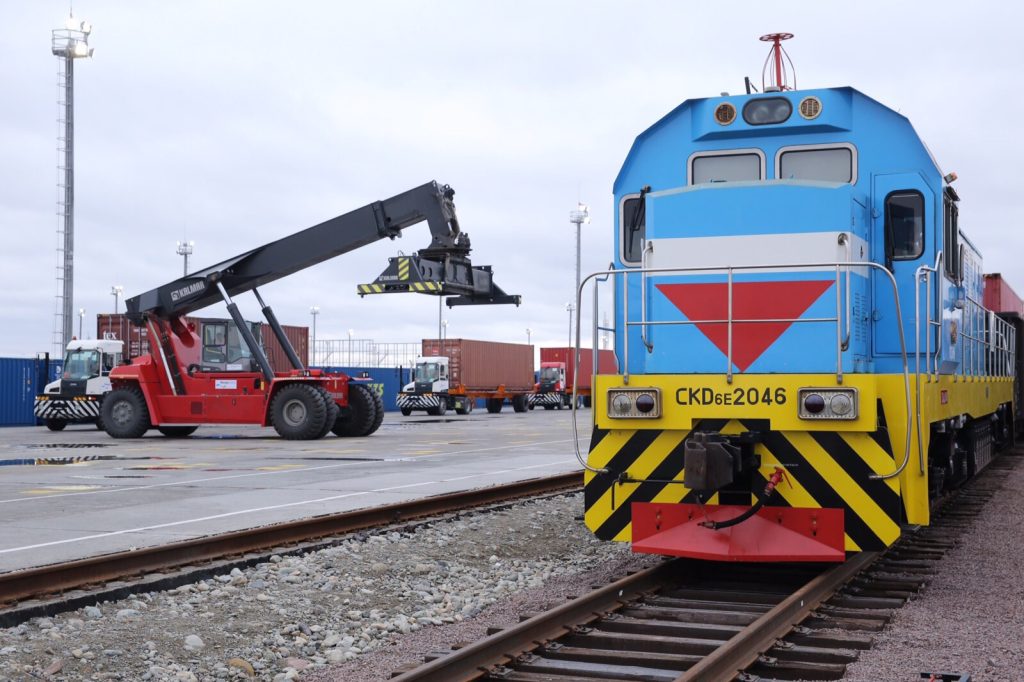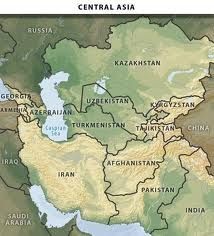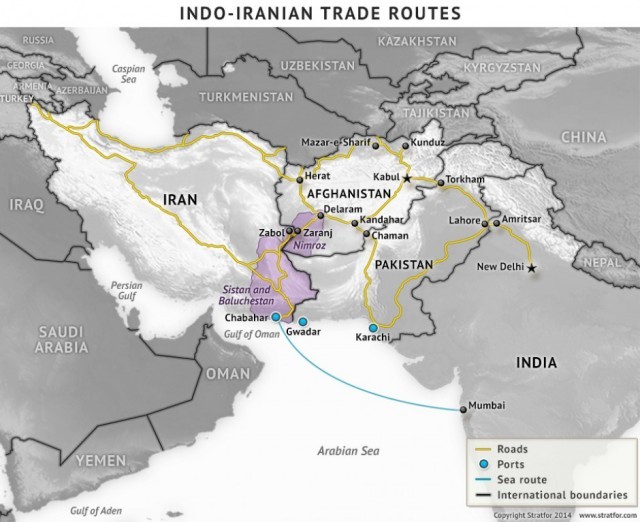Viewing results 1 - 6 of 209
ASTANA (TCA) — More than 1.2 million people visited the Khorgos International Center of Boundary Cooperation (ICBC) in 2018, an 8-percent increase compared to 2017, the press service of national railways company Kazakhstan Temir Zholy said. The Khorgos ICBC is located on the Kazakh-Chinese border in Kazakhstan’s Almaty province, and is a major international transport, transit and trading hub between Kazakhstan and China. The growth of visits was facilitated by measures to create conditions for conducting transparent business of investors and visiting tourists. Thus, the luggage terminal was reconstructed and enlarged from 900 to 3,500 square meters. The fleet of 15 low-tonnage cargo vehicles has been updated. This allowed reducing the time of delivery of visitors' goods from the baggage collection points to the point of delivery in the baggage terminal. There is a single operator for comfortable movement of visitors. Currently, the issues of exemption of Kazakhstan and foreign participants of FEZ ICBC Khorgos from payment of basic taxes, except the social tax, are being resolved. The assignment to ICBC Khorgos — a unique project of Kazakhstan and China for trade, economic, tourism and investment cooperation — of the status of Free Economic Zone (FEZ) created favorable conditions for the development of business and investment in the territory of Kazakhstan. In 2018, 12 investment companies were attracted with a total construction area of 32.7 hectares and a building area of 193,000 square meters. Over the years of operation of ICBC Khorgos, 21 contracts for the construction of investment facilities were signed. The area of land plots at Khorgos was 113.5 hectares with the exception of infrastructure facilities, and the area of premises was 805.4 thousand square meters.
SAMARKAND, Uzbekistan (TCA) — Afghanistan’s Acting Foreign Minister Salahuddin Rabbani said at the India-Central Asia Dialogue in Uzbekistan on January 13 that Afghanistan can provide the most cost-effective transit routes as he highlighted the country's importance for connecting the region, Afghan broadcaster TOLOnews reported. Continue reading
KABUL (TCA) — Officials from the Afghan Ministry of Industry and Commerce say the Lapis Lazuli transport corridor is low in cost and safer and closer compared with Pakistan’s Karachi port, Afghan broadcaster TOLOnews reported. Continue reading
BISHKEK (TCA) — India Ports Global Limited has taken over operations at the Shaheed Behesti port at Chabahar (Iran), India's Ministry of External Affairs said after the first meeting of the follow-up committee for implementation of the trilateral Chabahar Agreement between India, Afghanistan and Iran, Russia’s Sputnik news agency reported. Continue reading
KABUL (TCA) — Afghan President Ashraf Ghani at a ceremony in Herat on December 13 inaugurated the Lapis Lazuli Corridor, saying that the route enables Afghanistan to send its products to Europe and other parts of the world, Afghan broadcaster TOLOnews reported. The president said Afghanistan is in favor of connectivity policy and that the inauguration of the Lapis Lazuli Corridor is a milestone in this regard. He said that he appreciates the efforts by Afghanistan’s international partners including Turkmenistan, Turkey and Azerbaijan for the project. The Lapis Lazuli Route agreement was signed in October 2017 between Afghanistan, Turkey, Turkmenistan, Azerbaijan and Georgia. The route begins in Afghanistan’s northern Aqina port in Faryab province and Torghandi in western Herat province and will run through to Turkmenbashi in Turkmenistan. From there it will cross the Caspian Sea and will link the Azerbaijani capital Baku to Tbilisi and Georgia’s Black Sea ports of Batumi and Poti. It will then connect with Kars in eastern Turkey before linking to Istanbul and Europe. The Lapis Lazuli Route agreement was finalized after three years of talks and was signed during the 7th Regional Economic Cooperation Conference on Afghanistan (RECCA VII) in Ashgabat, Turkmenistan. The first shipment sent through the route yesterday includes more than 175 tons of cotton, dried fruit and sesame. The Lapis Lazuli corridor connects Afghanistan through Turkmenistan, Azerbaijan, Georgia to the Black Sea and ultimately through Turkey to the Mediterranean Sea and Europe. The Lapis Lazuli corridor is a historic corridor. Almost 2,000 years ago, lapis lazuli stone was exported from Badakhshan in northeastern Afghanistan through this route to Europe.
ASHGABAT (TCA) — The conference of transport ministers of the member countries of Lapis Lazuli Agreement between Turkmenistan, Azerbaijan, Georgia, Turkey, and Afghanistan was held on November 28 in the Avaza national tourist zone on Turkmenistan’s Caspian coast, the State News Agency of Turkmenistan reported. Continue reading






